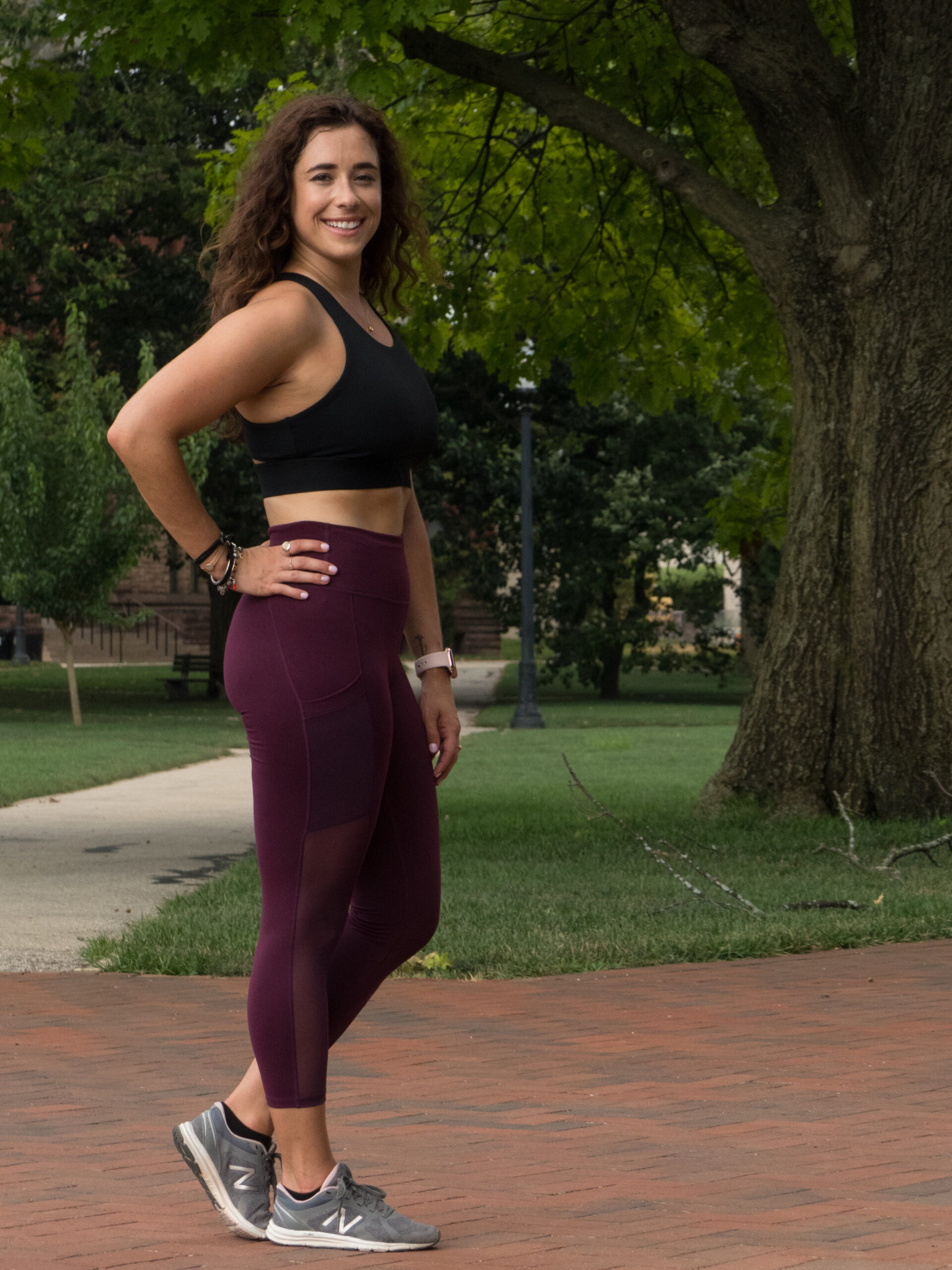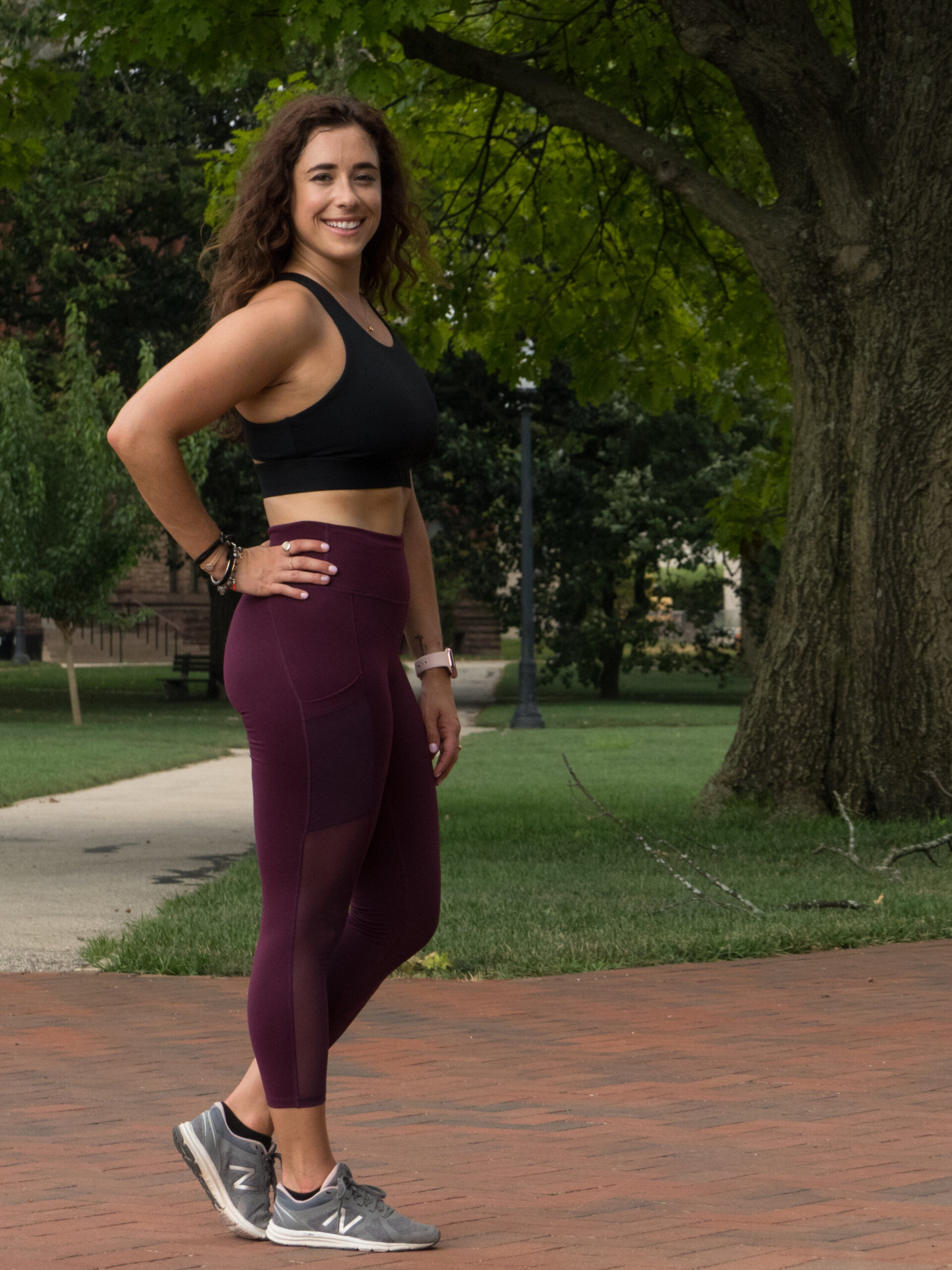YOUR BODY IS NOT YOUR IDENTITY
“If you don’t look good in the suit, you don’t swim.” These are the exact words I heard my coach say my freshman year as a college student-athlete. CUE THE PANIC! Why? I had always struggled with my body. I was an elite level synchronized swimmer, and even while training 8 hours a day, 6 days a week on the national team, I still didn’t have “the look” they were looking for. I was always the larger teammate. And I knew it. (Let’s be real. People in larger bodies are not oblivious to their size. In fact, they are likely hyper-aware of it. Thanks, diet culture).
I had hopes that college would be different than the national team and club swimming. I had hopes that the focus would be on my performance, not my appearance. And so hearing this at the start of the season my freshman year of college devasted me. I felt constant judgment every time I stepped foot on the pool deck, and that fear and insecurity with my body drove me to engage in unhealthy habits.
Over the course of my four years competing, I restricted my food intake to such extremes, I am honestly surprised I had enough energy to even get out of bed each day. I mean, 500-700 calories a day is not even enough for an infant, let alone an adult college-level athlete! To top it off, I was getting up early, or staying up late in order to get in some extra cardio in addition to the 4 hours’ worth of daily practice, hoping and praying that I would shed a few pounds. Maybe even just one. I would kill to shed one pound. My drive as an athlete outweighed my body’s physical needs, and my determination to look the part took precedence over everything else. WHY??? Because I placed my sole identity as a person in my identity as an athlete, and because my identity as an athlete was so closely wrapped up in the appearance of my body, the appearance of my body became my identity.
This led to four extremely unhappy college years. Which is really a bummer since college is supposed to be such an amazing time in one’s life!
No matter what I did, I could not lose any weight. Now, as a dietitian, I have the knowledge and I know this is because my body felt unsafe because I was depriving it of proper nutrition and overworking it to the point of such fatigue. The only thing it could do was hold on to my weight for dear life as a protection mechanism (I also have Hashimoto’s Thyroiditis which was likely a contributing factor as well). But because I couldn’t lose weight, and my identity was tied to my appearance, I was in a constant state of feeling unworthy.
As retirement approached, I had this exciting feeling that FINALLY, I would not feel like my worth was being measured by my appearance on a daily basis. That once I retired, I could be “normal” in the real world and just live! HA! Boy was I wrong. My identity as an athlete, and therefore my identity being placed in my appearance, continued well into retirement. Which means the unhealthy, unstainable habits continued as well.
It wasn’t until I was able to disconnect my identity from both my body and my title of ATHLETE, that I was able to truly take the steps necessary to heal my body, mind, and relationship with myself. For me, that’s what intuitive eating afforded me. It allowed me to disconnect my appearance from my worth, disconnect my health from a number, reconnect with my body, respect my body, so I could give it the nourishment, movement, and rest it needed to feel safe, be healthy, and function optimally.
There are times where I still feel that twinge of judgment for my appearance, and it takes me back to feeling as though my body determines my worth. But there are a lot less of those days and a lot more days of truly respecting my body. The transition out of athletics and into retirement brings about a whole mess of feelings, thoughts, emotions, questions, trials, and difficulties. Your body image and nutrition don’t have to be one.
GRAB MY HUNGER HACKS & FULL YOUR FULLNESS IN LIFE AFTER SPORT GUIDE HERE!

